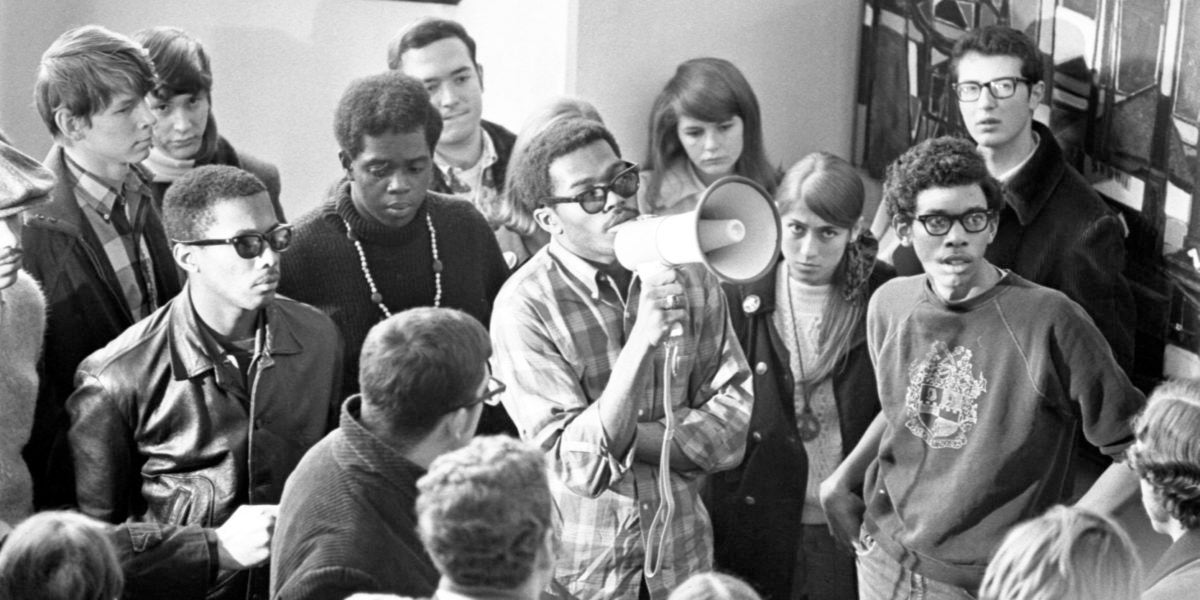Fifty Years of Black Activism and Study
In October 1967, African American students at Washington University formally announced in the student newspaper the formation of the Association of Black Collegians (ABC). In December 1968, acting similarly to their counterparts across the nation during that turbulent year, ABC confronted the administration with a position paper during the take-over of Brookings Hall. This paper’s list of demands was later expanded as The Black Manifesto, which became a kind of bill of rights and expectations for black students at the university. One of the principal demands was the institution of a Black Studies Program, “which will radically reform our future education.” The document continues, “We ask for this Black Studies Program because we feel it is not only necessary for our education, but for our very survival.”
Doubtless, for many black students, adjusting to the alien environment of a predominantly white university and the particular pressures, stresses, and humiliations such an adjustment subjected them to, may very much have seem a matter of psychic survival. What black students was not necessarily to feel less alienated from the whites around them but rather to put their alienation to a political and social purpose that would advance their interests as blacks. A Black Studies Program for many such students was not only place to study about African-descended peoples but also to protect themselves from “miseducation,” to borrow historian Carter G. Woodson’s term, or from being de-racinated or alienated from their own group for what these students sought was not integration but independence, the sort of specialized independence they felt they needed as young African American adults being forced to operate in a world largely based on white sensibilities. A Black Studies Program was meant to reassure these students about the core mission of their education: to change the world’s values to bring about the liberation of African-descended peoples from the thralldom of Eurocentric hegemony. The Black Manifesto was of such importance in the history of black student consciousness at Washington University that new, updated versions of it have been issued in 1978, 1983, and 1998 as repeated calls for action.
Black Studies was formally established in September 1969 with a part-time director. Robert L. Williams became the first full-time director when he was appointed on June 15, 1970. The original faculty included Williams, PhD (Psychology), Jack Kirkland, MSW, (Social Work), Ronald S. Bailey, PhD, (Political Science), Curtis Lyle, poet in residence, Tilford Brooks, MA, (Music), Robert C. Johnson MAT (Education), and Paul Smith, BD (Religion). Fifty years later, their spirit lives on in the faculty and students of the current Department of African and African-American Studies at Washington University.

